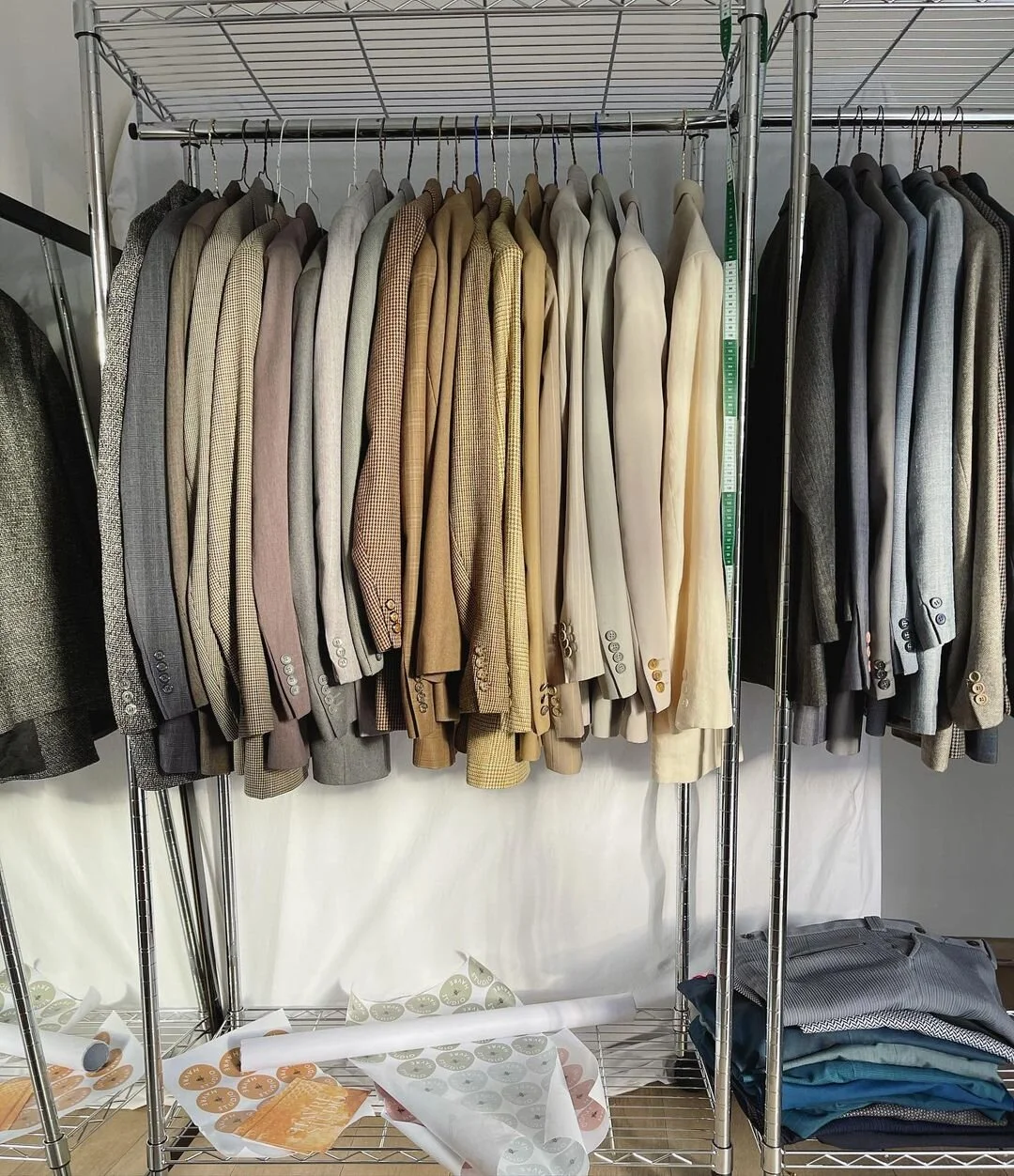INTERVIEW #13 HAVRE STUDIO
Hi Madeleine and Havre Studio! So much fun to have you here on A Sustainable Closet today! Tell us, how are you?
Thank you for having me ! I'm very well thank you. In the midst of exams and a lot of work, but excited and motivated at the moment.
And now to your business, what is Havre Studio, where are you based and when did you launch?
Havre Studio is a Copenhagen based collection of carefully curated vintage finds from Mexico City. The pieces are unique in style and age, and will be altered and tailored according to each piece, pro-longing the life span of each item and giving it a new purpose
What is the main idea behind the concept?
Havre Studio started quite organically. My boyfriend moved to Mexico City in 2019, which led me to spend a lot of time there. I was and am currently doing my Masters at Copenhagen Business School, so I took it from abroad for a while, as I spent a lot of time in CDMX. Whilst getting familiar with the city, I quickly noticed how many special vintage finds there were and slowly had them altered and changed in different ways. It started in Autumn 2019, just for friends and family who began wearing the pieces in CPH. It was a very small Instagram page then, and a passion project, where I practiced Spanish with some of the seamstresses.
When Covid-19 hit, my suppliers, seamstresses and drycleaners lost all their work almost overnight. At the time, interest for Havre had increased quite a bit. Whilst talking to all the independent businesses I had been working with and how scared they were for losing income, and basically not being able to support their families, I thought I could attempt to increase the volume and be able to give them an income. Fortunately, demand was there and Havre has been able to compensate and more for them, and we’ve been able to expand the network of people to support and work with too.
Where do you find your inspiration?
I find it all around. But often when I’m at vintage markets, and generally seeing people out and about in CDMX and CPH. Mainly when I buy vintage, whether it is clothes, furniture, etc.
“I think the whole fashion industry is built on a very unsustainable foundation. It’s an industry that relies on us to purchase things we don’t need.”
What has been the largest gain up until now?
I think seeing the people I work with thrive. One of the women we work with is Gladiola. She has collected and sold vintage for 25 years to filmsets, but lost all her work at the beginning of Covid, so we began working together. She’s got incredible pieces from the 1800’s-1990’s. She went from losing all of her work during the pandemic to actually being able to buy her own studio for her clothes for the first time in her career.
My seamstress Koko has also been able to renovate her entire studio and hire even more people.
Perhaps also finding something, quite coincidentally, that has been able to grow and provide something valuable to people around me, whether it's customers who are wearing their vintage pieces to their weddings, christenings, graduations, etc., or the people we work with. I also find a lot of joy in it, despite all of the work that goes into it.
What do you think needs to change in the fashion industry in order to make it more sustainable?
I think the whole fashion industry is built on a very unsustainable foundation. It's an industry that relies on us to purchase things we don't need. Especially fast fashion and the little resources that go into the clothing and workforce, as well as often copied designs. It breaks my heart, the more I learn about it.
What is “greenwashing” according to YOU and what in your opinion, can producers and consumers do to avoid it?
I think "sustainability" is such an umbrella term that gets thrown around so much. Sustainability to me means meeting the needs of today without compromising the needs of tomorrow. I am very critical when it comes to sustainability and what one can call sustainable. I think we live in a convenience culture, where we don't really question greenwashing enough, as "sustainability" is made so available to us. I think one should educate oneself on greenwashing and sustainability. If a brand doesn't have sustainability ingrained in the supply chain, but has one "conscious collection" consisting of a blend with 15% recycled polyester, that's not sustainable. I could go on about this for ages, as I think there is so much to say. But I think it's important to be critical, and not fall for all the marketing. Alter, fix and clean your wardrobe, and build a second hand (preferably) wardrobe with pieces you'll use frequently and for a long time. Don't buy something just because you don't feel as though you have anything to wear on the weekend.
“ I think we live in a convenience culture, where we don’t really question greenwashing enough, as “sustainability” is made so available to us.”
What is your advice to fashion consumers out there who seek to create a sustainable closet and lifestyle?
I only buy second hand now, and very rarely shop. But I love flea markets and vintage boutiques. I recommend buying something that you know you’ll use a lot, and also think about it. Check the condition, and 100% have it altered if it doesn’t fit right. Often we have things in our closet that we just don’t have adjusted if they don’t fit.
Visit Havre Studio and follow them on Instagram!



